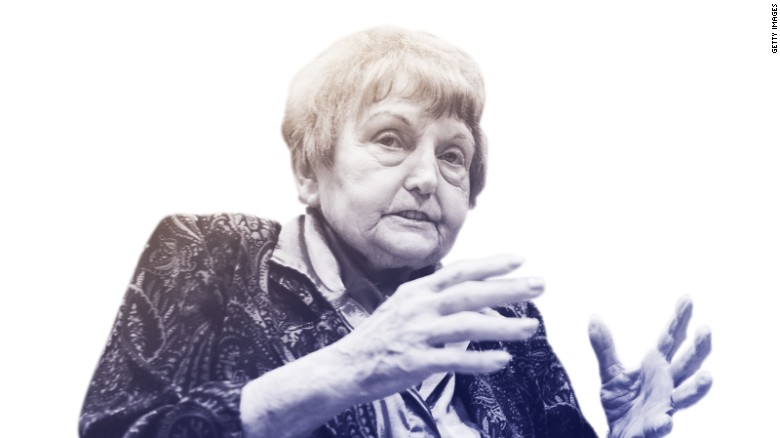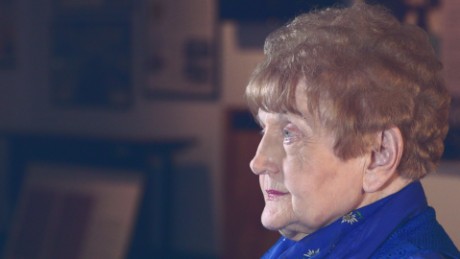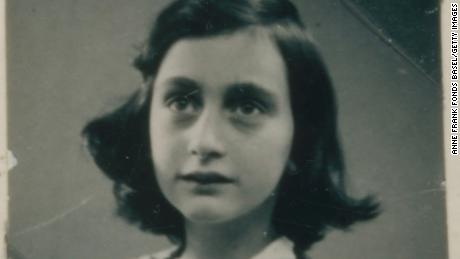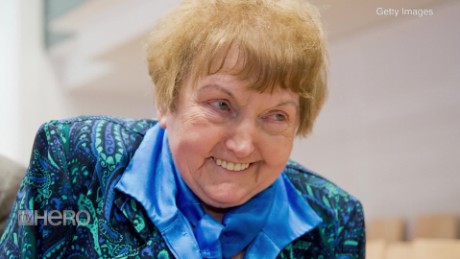My Hero is a series profiling remarkable people around the world who have touched the lives of anchors and correspondents at CNN.
(CNN)What makes a hero? Courage. Selflessness. Forgiveness. For CNN London correspondent Max Foster, heroism goes by the name of Eva Kor.
Eva Mozes Kor was 10 years old when she entered Auschwitz in 1944. A Hungarian Jew, the journey from the ghetto in Simleu Silvaniei, Romania was long, and she and her family had endured 70 hours without food or water.
On the platform, like so many before her, Kor's family was torn apart. Her two older sisters and father were taken away for execution. Her mother was torn away from her soon after. Kor never saw her again. At that point, just Eva and her identical twin Miriam remained.
Twins suffered terrible fates in Auschwitz. Eva and Miriam became one of approximately 1,500 pairs abused by Dr Josef Mengele. Dubbed Todesengel, "The Angel of Death," Mengele was an officer and physician based at Auschwitz-Birkenau, conducting arbitrary experiments on children.
The Nazis were interested in the secrets of fertility, Kor told CNN in 2016, and researchers believed uncovering the genetics behind twins would allow German mothers to give birth to more offspring, growing the Aryan race.
Mengele's sadistic methods gained infamy, and often had horrific consequences. Many of the so-called Mengele Twins died.
"I had difficulty coping with the fact that I was a nobody and a nothing -- just a mass of cells to be studied," she wrote in 2015.
As part of CNN's "Voices of Auschwitz" series, commemorating the 70th anniversary of the camp's liberation, Kor describes Mengele injecting her five times a day with substances still unknown to the victim.
"After one of those injections, I became very ill," she recalls. "[The] next morning Dr Mengele came in. He turned to the other doctors... laughing sarcastically, he said 'Too bad, she's so young. She only has two weeks to live.'"
Had Eva succumbed, Miriam would have received an injection to the heart, killing her instantly. Mengele would then have performed comparative autopsies. But Eva survived -- and so too, her sister.
Kor's experiences in Auschwitz kick-started a life of advocacy work, teaching remembrance, understanding and, remarkably, forgiveness.
In 1984 Eva and Miriam founded CANDLES, an acronym for Children of Auschwitz Nazi Deadly Lab Experiment Survivors. The CANDLES Holocaust Museum and Education Center followed in 1995 in Terre Haute, Indiana, Kor's home since 1960. The center was firebombed in November 2003, but fundraising allowed it to reopen in 2005, and to this day it remains an important part the area's Jewish community.
Since the organization began, CANDLES says its efforts have located 122 individual Mengele Twins across four continents and ten countries.
Foster nominated Kor as "My Hero" after what he calls an "extraordinary interview" in 2016 as part of "CNN Inspirations: Incredible Survivors," filmed in front of a live audience.
"She was the ultimate survival story," says Foster. "It's extraordinary, the interview, because it starts in utter desperation but ends in a very hopeful situation, where she describes how she wanted to forgive her captors."
Kor, 50 years after her internment in Auschwitz, returned and came face-to-face with Dr Hans Munch, a Nazi doctor who, while never working at the concentration and extermination camp, was familiar with her captors.
"Standing next to the doctor," Foster says, "she asked him to document everything he knew about the gas chambers... She wanted to thank him for that because it was a very big thing for him to do, for those survivors of Auschwitz and all those who perished as well."
Kor decided to write to the doctor; a letter that took four years. It was a letter forgiving him.
"She describes it as this great release," the correspondent explains. "For the first time she had control over what happened to her and the Nazis didn't [...] because she had forgiven them, and she could move on... they no longer had control over her.
"The way that resonated with the audience was extraordinary... you almost feel a duty to want to live up to what she did for you, which is open up and then forgive the people you have a problem with."
The Auschwitz survivor has made it her mission to preach forgiveness, telling her story "to help other people get on with their own lives and get over their own lives," says Foster.
"She's so utterly unselfish. It can't be easy for her, doing what she's doing, but she's doing it to give back to the world."
Watch the full interview between Max and Eva:













